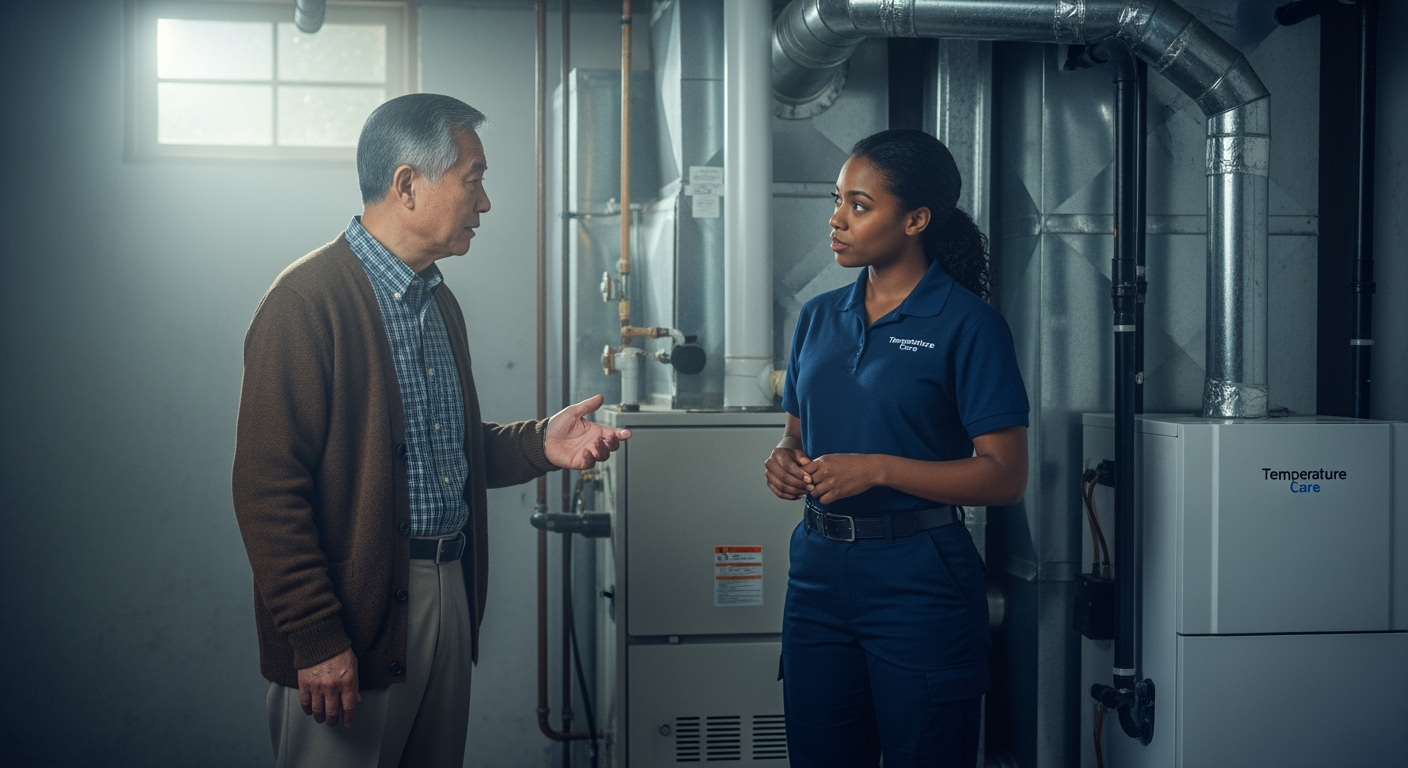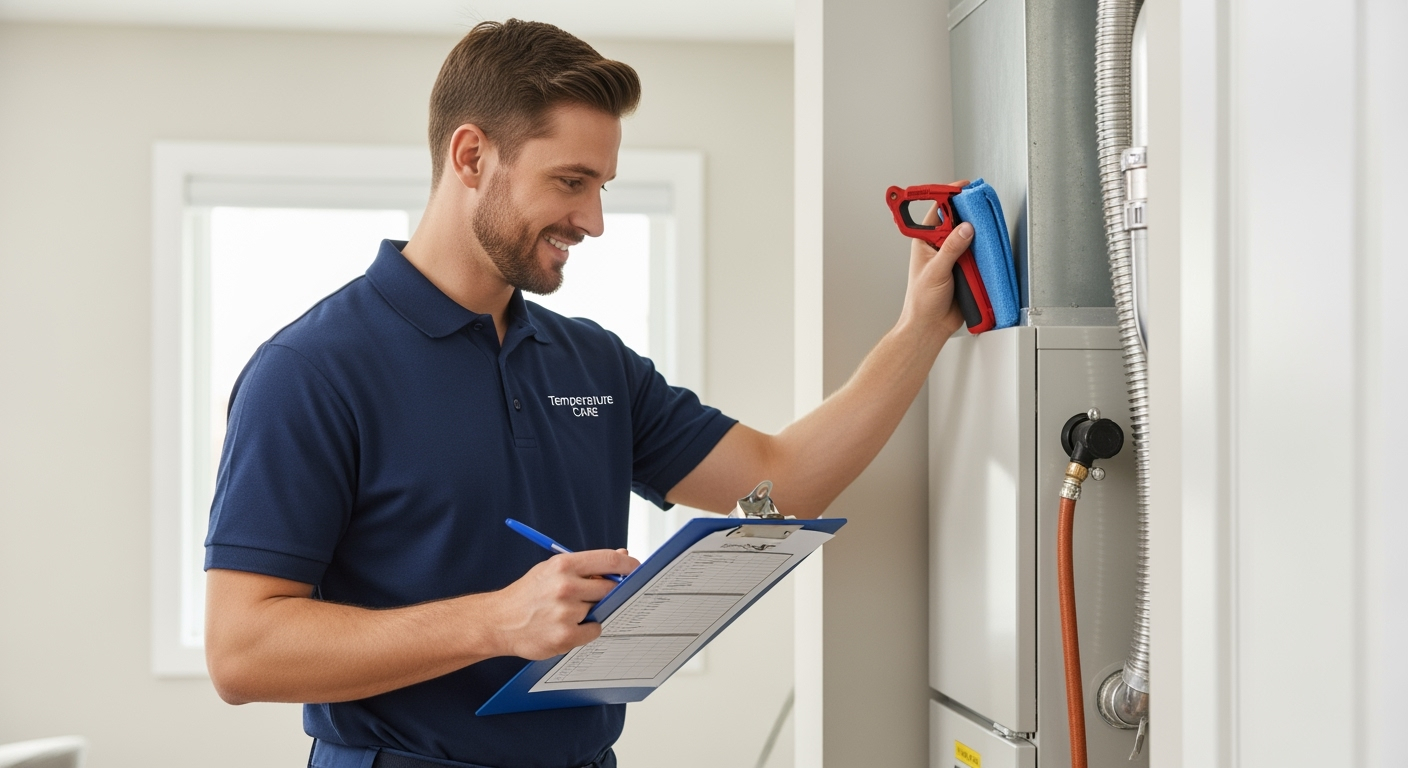When it comes to keeping your home comfortable throughout the year, you have a few options. Among the most common choices are heat pumps and air conditioners. Both systems are designed to regulate indoor temperatures, but they do so in different ways and come with distinct advantages and disadvantages. This article, presented by TemperatureCare, will delve into the differences between heat pumps and air conditioners, helping you make an informed decision for your home.
Understanding the Basics: How Do Heat Pumps and Air Conditioners Work?
How Heat Pumps Work
A heat pump is a versatile system that can both cool and heat your home. It works by transferring heat from one place to another. In cooling mode, a heat pump extracts heat from inside your home and releases it outside, similar to how an air conditioner operates. However, during colder months, the process reverses, and the heat pump extracts heat from the outside air (or ground, depending on the type) and transfers it inside your home.
How Air Conditioners Work
An air conditioner is designed solely to cool your home. It operates by removing heat from the indoor air and releasing it outside. The system consists of an evaporator, condenser, and compressor. The evaporator absorbs the heat from the indoor air, and the refrigerant in the system carries it to the condenser, where it is expelled outside.
Energy Efficiency: Which System Saves You More?
Heat Pump Efficiency
Heat pumps are renowned for their energy efficiency, particularly in moderate climates. Since they transfer heat rather than generate it, heat pumps can provide up to three times more heating energy to a home than the electrical energy they consume. This high efficiency can lead to significant savings on your energy bills, especially if you live in an area where the temperature rarely drops below freezing.
Air Conditioner Efficiency
Air conditioners are also efficient, but only in cooling mode. The efficiency of an air conditioner is measured by its SEER (Seasonal Energy Efficiency Ratio) rating. The higher the SEER rating, the more efficient the system. However, unlike heat pumps, air conditioners cannot provide heating, meaning you\’ll need a separate heating system, such as a furnace, which can affect overall energy costs.
Cost Considerations: Upfront and Long-Term Expenses
Initial Costs
The initial cost of a heat pump is typically higher than that of an air conditioner. This is because heat pumps can both heat and cool your home, eliminating the need for a separate heating system. The installation process can also be more complex, especially if you\’re opting for a ground-source heat pump, which requires the installation of underground loops.
Air conditioners generally have a lower upfront cost since they are less complex systems designed only for cooling. If you already have a furnace or another heating system in place, an air conditioner might be the more economical option upfront.
Operating Costs
While heat pumps might have a higher initial cost, their operating costs can be lower over time due to their high efficiency in both heating and cooling. In regions with mild winters, a heat pump can be a cost-effective solution for year-round comfort.
Air conditioners, combined with a separate heating system like a furnace, may lead to higher operating costs overall, especially if the heating system is less efficient or if energy prices rise.
Climate Considerations: Which System Suits Your Region?
Heat Pumps in Different Climates
Heat pumps are most effective in moderate climates where the temperature doesn’t drop too far below freezing. In colder climates, heat pumps may struggle to extract enough heat from the outdoor air, leading to decreased efficiency. However, some modern heat pumps are designed to operate efficiently even in lower temperatures, thanks to advancements in technology such as variable-speed compressors and enhanced refrigerants.
Air Conditioners in Different Climates
Air conditioners are suitable for all climates when it comes to cooling. However, because they do not provide heating, they are often paired with a furnace or another heating system in colder regions. This can be a more reliable solution in areas with harsh winters, where maintaining a warm indoor environment is crucial.
Environmental Impact: Which is Greener?
Heat Pump Environmental Impact
Heat pumps are generally considered to be more environmentally friendly than traditional heating systems because they use less energy to transfer heat. They also typically have a lower carbon footprint, especially if powered by renewable energy sources. However, the environmental benefits of a heat pump can vary depending on the energy mix in your region (e.g., coal vs. renewables).
Air Conditioner Environmental Impact
Air conditioners, while efficient at cooling, are generally less environmentally friendly than heat pumps because they require a separate heating system. The combination of an air conditioner and a fossil fuel-based furnace, for example, can result in higher greenhouse gas emissions. However, using high-efficiency air conditioners and pairing them with sustainable heating systems can mitigate some of these impacts.
Maintenance and Lifespan: What to Expect
Heat Pump Maintenance and Lifespan
Heat pumps typically require more frequent maintenance than air conditioners because they operate year-round. Regular maintenance includes checking refrigerant levels, cleaning coils, and ensuring that the outdoor unit is free from debris. When properly maintained, a heat pump can last between 10 to 15 years, although some high-quality models may last even longer.
Air Conditioner Maintenance and Lifespan
Air conditioners generally require less maintenance since they are only used during the cooling season. However, it\’s still important to clean the coils, change filters, and check refrigerant levels to ensure optimal performance. The lifespan of an air conditioner is typically around 15 to 20 years with proper maintenance.
Making the Right Choice: Heat Pump or Air Conditioner?
The decision between a heat pump and an air conditioner ultimately depends on your specific needs, climate, and budget. If you live in a moderate climate and are looking for an all-in-one solution for heating and cooling, a heat pump may be the best choice. However, if you live in an area with extreme winters or already have a reliable heating system, an air conditioner might be more appropriate.
Consider the long-term savings, environmental impact, and comfort needs of your household when making your decision. Both systems have their merits, and the right choice will provide you with the best combination of efficiency, cost-effectiveness, and year-round comfort.
If you want to read more information about how to boost traffic on your Website just visit The Insider\’s Views.
 905-780 3262
905-780 3262

